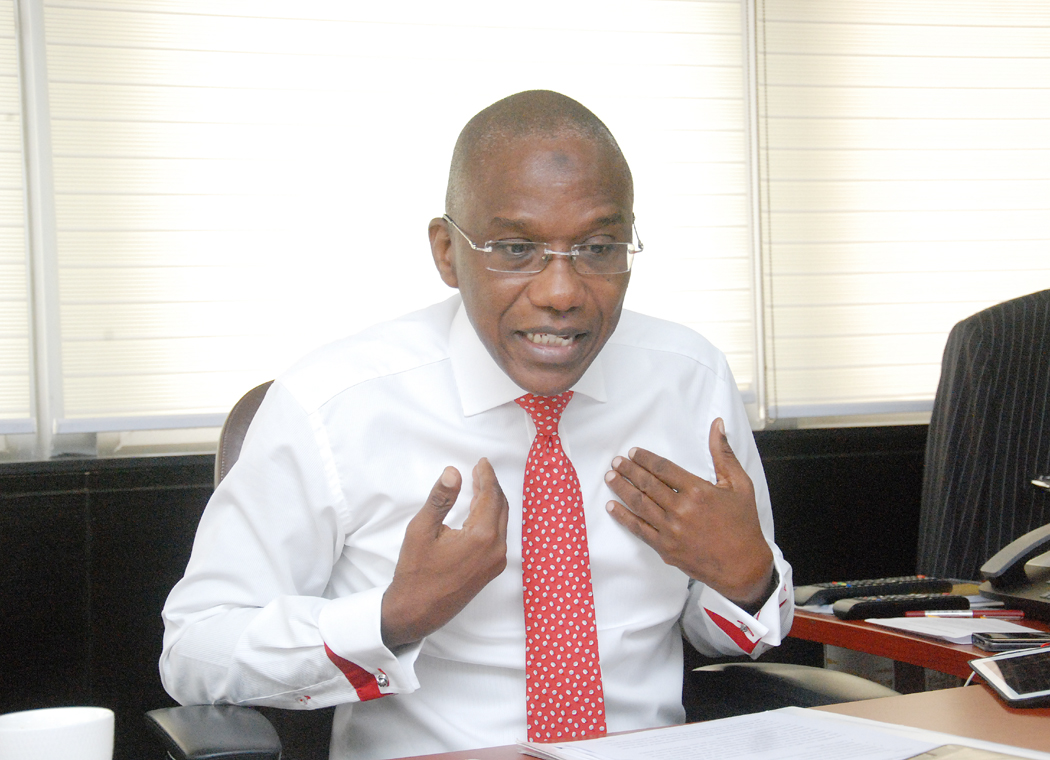By Bashir Ibrahim Hassan
Although Asset Management Corporation of Nigeria (AMCON) has recovered about N1.22 trillion of the bad debt – with about 5trillion still outstanding –the agency’s reputation has for long been blemished by the impression that, while recoveries are made from those without political clout, well-connected people known to be big debtors walk the streets freely. The situation is about to change for the better.
“I think the time has come for us (Federal Government) to set some examples with some of these top debtors of AMCON, which…will serve as deterrent to others.” These were the words of Vice-President Prof. Yemi Osinbajo while reading the riot act that sets the enforcement mode that Asset Management Corporation of Nigeria (AMCON) has just entered. It is not going to be kid-globe treatment for obligors, he seems to be saying. The Vice President commended the management of AMCON under the indefatigable Kuru for its high performance so far and pledged the Federal Government’s resolve to support the corporation in its recovery efforts. How the Federal Government will do this? The VP gave a hint.
He said in essence the Federal Government will set up an inter-agency collaboration framework that would comprise relevant government Ministries, Departments and Agencies supervised by his office to ensure that institutions and individuals indebted to AMCON were not allowed to do business with government henceforth. This will hit the obligors hard and will force them to cough some millions to settle the debt they owe AMCON. This is a welcome development and it will strengthen AMCON in its arduous task of enforcement of recovery efforts. It is a task, as the VP confirmed, that is not easy. “The work you do as a recovery agency is not something that is particularly easy or encouraging because we all know how Nigeria works.”
He then assured the management and the board that paid him a visit that the Federal Government is “committed to working more closely with your administration to ensure that these monies are recovered from AMCON obligors, because it will help our economy and provide the government with more money to continue to improve on the development of infrastructure across the nation.”
AMCON was created to be a key stabilizing and re-vitalizing tool to revive the financial system. It went ahead to efficiently resolve the non-performing loans (NPL) assets of the banks in the Nigerian economy. Its objectives include: assist eligible financial institutions to efficiently dispose of eligible bank assets; efficiently manage and dispose of eligible bank assets acquired by it; and obtain the best achievable financial returns on eligible bank assets or other assets acquired by it.
Early in its operations AMCON acquired about 13,774 Non-Performing Loans (NPLs) worth N3.6 trillion from 22 commercial banks in Nigeria and provided financial accommodation of N2.2billion, a protected N4.7trillion of depositors’ funds and interbank takings as well as saved approximately 14,000 jobs. No one can deny the fact that, through AMCON’s intervention, the Federal Government successfully managed the nation’s debt crises and saved the banking system from imminent systemic collapse. But this achievement will not be complete until and unless it recovers those bad debts, which it uses tax payers’ money to purchase.
AMCON has applied all the strategies in debt recovery that can be found in the books. Some of its recovery strategies also include divestments. For example, AMCON recovered the sum of N152.3 billion from its equity injection of N1.49 trillion to the five EFIs. This represents a 10% recovery rate on investment. Similarly, AMCON successfully divested the three bridge banks to private investors for a combined sum ofN207.8 billion. This represents a 23% recovery rate on amount invested.
It then went out of its way to apply very novel Asset Management Partners (AMPs) model. The AMPs are consortiums with specialist skills required to ensure recovery and debt resolution from banking, legal, valuation and accounting backgrounds. The move is AMCON’s strategy to resolve over six thousand accounts with loan balances of N100 million and below. In this arduous task of debt recovery Ahmed, Lawan Kuru, the managing director and CEO of AMCON, who is a seasoned banker, is not oblivious of the fact that debtors are not necessarily enemies and that they should be supported to transform their NPLs to RPLs (re-performing loans) through enhancing their productivity. That has been tried successfully with some obligors. The case of Skye bank (now Polaris bank) in 2018 and Arik air take over by AMCON the year before are good examples here.
AMCON, in accordance with the takeover objective of the Federal Government of Nigeria, provided working capital in excess of about N4 billion to Arik Air Limited (“Arik Air”) to salvage its operations. It is important to note that Arik Air, prior to the injection of the working capital, was indebted to AMCON to the tune of N142 billion. But on 9th February 2017, following Arik Air’s persistent failure to honour its obligations, Oluseye Opasanya, SAN (“Receiver Manager”) of the firm Olaniwun Ajayi LP sought and obtained a court order to put Arik Air into receivership. The efforts have since effectively stabilized the operation of the airline.
AMCON was instrumental to the rescue of Skye Bank Plc. (now Polaris Bank Limited) orchestrated by the CBN and the Nigerian Deposit Insurance Corporation. In September 2018, AMCON injected the sum of N898 billion into Polaris Bank Limited to prevent it from financial collapse. Under Kuru, AMCON has demonstrated through these approaches that they knew the import of balancing the act of giving a breather to debtors to meet their obligations and the need for AMCON to realise its own mandate. But some obligors are recalcitrant about this window of opportunity and hence the need to adopt this enforcement mode.
Kuru’s vast experience as a risk management expert prepared him for his current lead position in AMCON. He knew his onions well, having played at the top echelon of the defunct Bank PHB as executive Director overseeing critical areas like Risk Management, Compliance, Commercial Banking, Northern Operations, Public Sector, Multilateral Agencies and the West Coast, East and Central Africa expansion programme of the bank.
Nigeria has had its own fair share of the impact of the 2008 global financial meltdown on its banking and other financial sector that made the government to adopt some innovative measures to prevent systemic collapse of our banking system. Three prominent ones stand out — bailout, bridge banking and, perhaps the most significant of all, the establishment of Assets Management Corporation of Nigeria (AMCON) in 2010. Thus far AMCON’s interventions have worked. The debt recovery should not be allowed to mar the successful stabilization of the economy we all are happy with. Therefore, all hands must be on deck to ensure few individuals do not hold the country at ransom and turn otherwise a very good idea into a bad dream.
I have argued somewhere that the truth about debt is, no company or individual is forced to borrow money in the first place. Ultimately, if companies owe a debt, it’s because they chose to borrow money. Their lenders made that loan, or offered the credit line, contingent upon a documented pledge to pay it back. This means creditors do have a right to their money, and a debt collector is simply trying to reclaim what is legally and ethically owed by the debtor.
If having followed all the avenues to recover the debts owed AMCON, giving all the windows of opportunity to renegotiate the terms and yet some obligors are failing or even dodging their responsibilities, there is no harm if AMCON runs to Federal Government and indeed to any other body that can help with ways and means to force the obligor to pay off.
Perhaps this kind of stern warning from the serious-minded VP that the Federal Government under the leadership of President Muhammadu Buhari, would no longer fold its hands and allowed a few individuals that owed AMCON huge sums of money walk freely on the streets in the country is what is needed for high profile obligors to comply and do the needful.
Hassan, a financial analyst, wrote from Abuja





